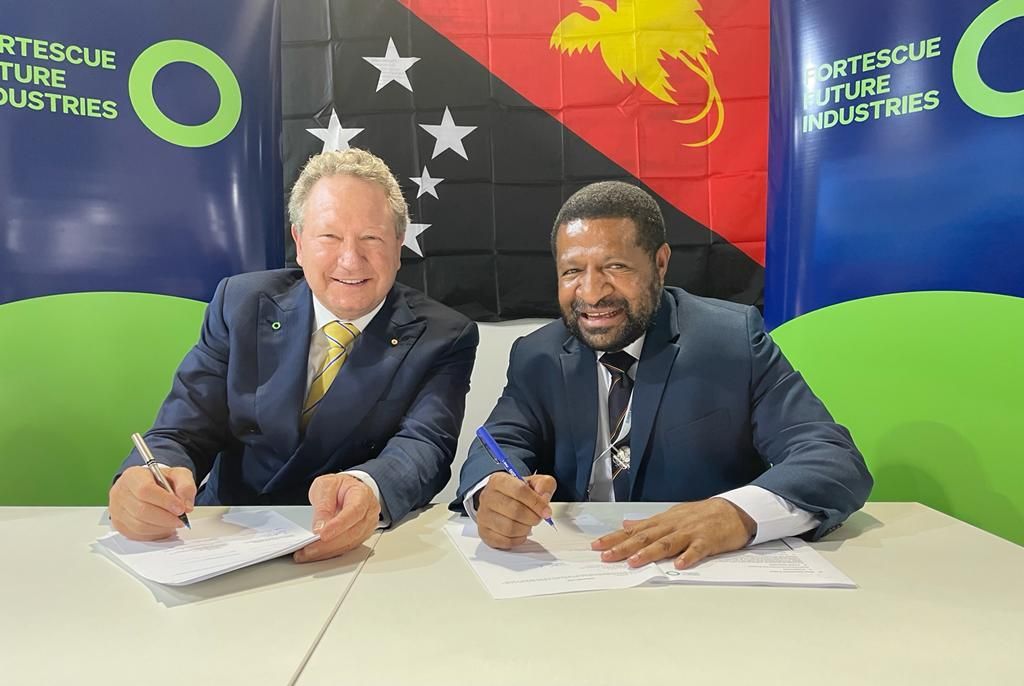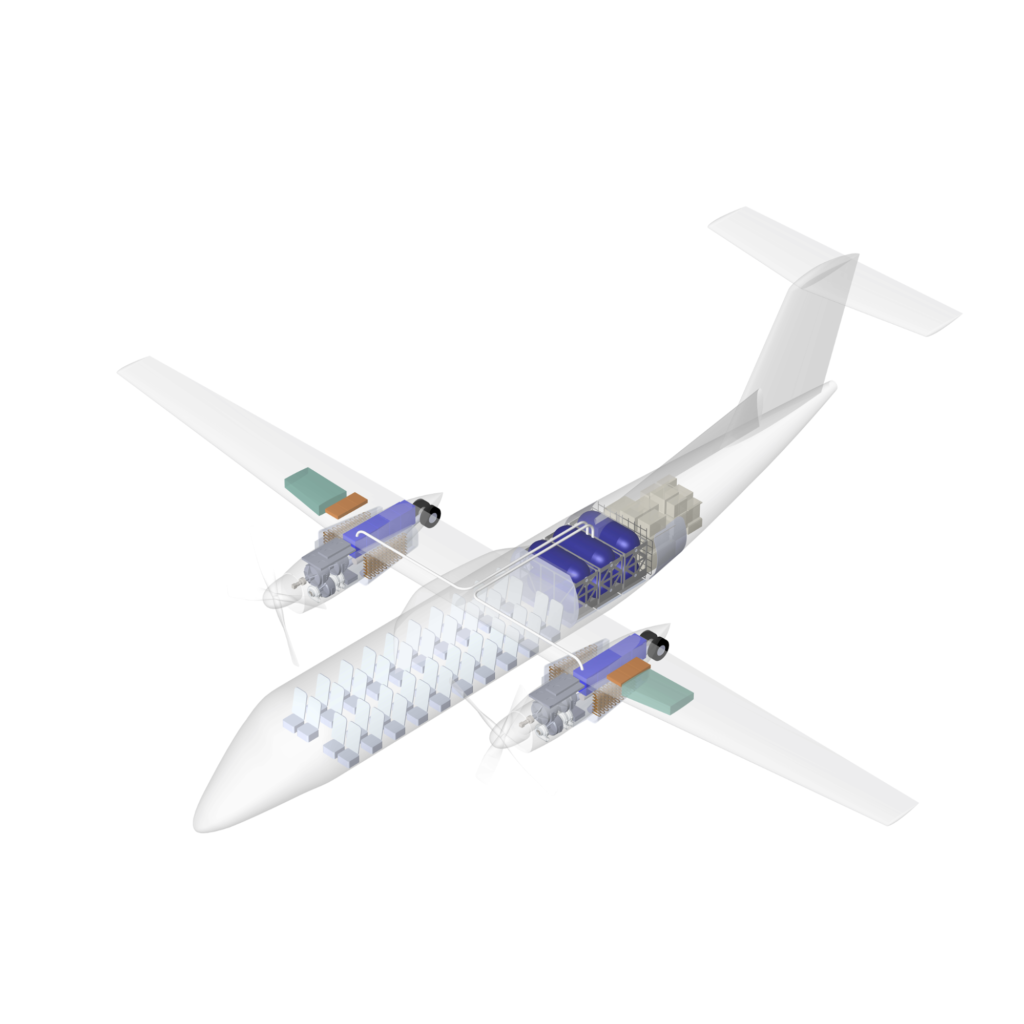Fortescue Future Industries powers ahead on green ammonia
By Julian Atchison on November 17, 2021
Fortescue Future Industries has been hitting the Ammonia Energy headlines of late. Last month FFI announced an electrolyser mega-factory announced for Gladstone, Australia. In Glasgow they became a founding partner of the First Movers Coalition (with associated commitments to purchase and utilise ammonia fuel at certain levels by 2030), and fast-tracked the maritime ammonia conversation this week with the announcement that one of their vessels would be converted to run on near 100% ammonia fuel within 12 months. All of these announcements point towards a singular target, announced in June by Fortescue Chairman Andrew Forrest: the supply of 15 million tonnes green hydrogen to global markets by 2030. Taken on their own these are significant steps, but COP26 was also the stage for a number of other significant ammonia and hydrogen-related announcements by FFI.
Green ammonia production projects in Papua New Guinea, Jordan & Argentina

An agreement with PNG’s government will see FFI explore the feasibility of seven hydropower and eleven geothermal power generation projects, with the electricity to be used for green hydrogen and ammonia production. In total 2.3 million tonnes of green hydrogen (or 11.5 million tonnes green ammonia) could be produced every year. Currently PNG relies on oil imports, so the projects present an opportunity for the country to develop a domestic energy sector as well as an export industry.
The partnership with the Kingdom of Jordan will see FFI explore large-scale wind and solar power generation projects. Adjacent port facilities mean a green hydrogen and ammonia export industry can be established.
The Framework Agreement, signed by both parties, sets the groundwork for FFI to study the possibilities of large-scale solar and wind production. The Framework Agreement provides FFI with a minimum initial area of land for preliminary studies comprising 450 square kilometers for potential solar production, 1,000 square kilometers for potential wind energy production, and 1.5 square kilometers within an industrial zone for potential downstream production facilities.
Depending on the outcome of FFI’s studies, the parties may then negotiate the terms of an Investment Agreement to develop and construct a green hydrogen and/or green ammonia production facility on that land.
FFI’s official press release, Fortescue Future Industries partners with the Kingdom of Jordan on green hydrogen, 3 Nov 2021
And a meeting with Argentinian President Alberto Fernandez in Glasgow has resulted in a to-be-formalised plan for FFI to invest $8.4 billion in a 2.2 million tonnes per year, export-focused green hydrogen project. FFI will test onshore wind power potential in Rio Negro before constructing a $1.2 billion pilot facility (to be operational in 2022). If feasible, the final $7.2 billion investment will bring the project up to full scale, with a 2030 target for operation at 100% production capacity.
10% of FFI’s hydrogen production has a buyer
UK organisations JCB and Ryze Hydrogen have formally agreed to purchase 10% of FFI’s global green hydrogen production, anticipating it will grow from 15 million tonnes in 2030 to 50 million tonnes by 2040. On its arrival, the two UK firms will manage distribution of hydrogen and developing customer demand. Ryze was founded by JCB Chairman Lord Jo Bamford, and is currently developing the UK’s first network of green hydrogen production plants.
Decarbonising aviation
FFI and the Los Angeles-based Universal Hydrogen will partner up to help make hydrogen-powered commercial flights a reality. Under the new agreement the two will:
• Negotiate a global offtake arrangement whereby FFI will supply green hydrogen to Universal Hydrogen to power regional and other aviation sectors until 2035;
• Conduct a scoping study to develop green hydrogen production and logistics hubs in Iceland, New Zealand and Southeast Queensland; and
• Evaluate future green hydrogen demand in the aviation industry on a region-by- region basis to identify and promote green hydrogen adoption and uptake.
FFI’s official press release, FFI and Universal Hydrogen join forces to decarbonise aviation, 3 Nov 2021

Universal Hydrogen is currently developing a lightweight, modular capsule technology to store & deliver hydrogen fuel in a variety of aircraft sizes. The capsules are designed to store liquid or gaseous hydrogen delivered from existing freight networks and cargo handling equipment. Universal plans to run the first test flight using its technology next year, with commercial services to start from 2025 if viable. FFI is an early investor in the aviation startup.
More electrolyser news
FFI acquired the commercial assets and R&D of Xergy, a US-based materials engineering organisation that is developing a next-generation anion exchange membrane. Xergy also has a portfolio of products including hydrogen compression and delivery equipment, as well as electrochemical and fuel cell components.
Fortescue’s mega-factory in Gladstone, Queensland also received planning approval from the Queensland state government this week.